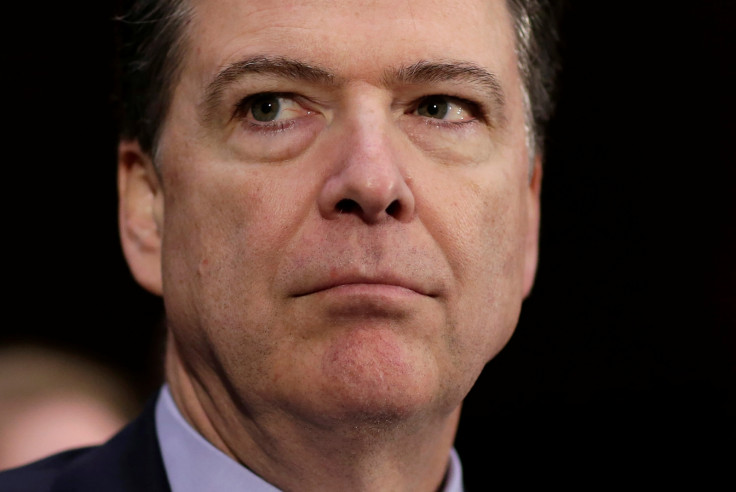FBI boss James Comey says 'Even our memories aren't private' as concerns mount over CIA hacking
Comey said that 'absolute privacy' did not exist in the US, adding that encryption has limited the FBI's ability to access devices.

As America comes to grips with WikiLeaks' revelations about CIA hacking, FBI director James Comey warned that "absolute privacy" does not exist in the US. Comey made his comments at a cybersecurity conference in Boston and also indicated that he expects to serve out the remainder of his 10-year term with the agency.
"You're stuck with me for another 6-1/2 years," Comey said, Reuters reported. Comey also said, "There is no such thing as absolute privacy in America."
"All of us have a reasonable expectation of privacy in our homes, in our cars, and in our devices. But it also means with good reason, in court, government, through law enforcement, can invade our private spaces," Comey said at the conference on Wednesday. "Even our memories aren't private. Any of us can be compelled to say what we saw ... In appropriate circumstances, a judge can compel any of us to testify in court on those private communications," he added.
He reportedly ignored questions about President Donald Trump's accusations of former president Barack Obama authorising wiretapping. Comey allegedly pushed US Justice Department officials to refute Trump's claims as it falsely alluded to the FBI breaking the law. Neither the Justice Department nor the FBI have officially commented on the matter.
The White House said that despite Comey challenging Trump's claims, Trump still has confidence in the FBI head.
FBI Director James Comey, head of America's domestic surveillance agency, speaking today on privacy: pic.twitter.com/rJdbTfOdQl
— Edward Snowden (@Snowden) March 8, 2017
Encryption still a sore point for FBI
During the conference, Comey also attempted to highlight the challenges that encryption poses to law enforcement agencies like the FBI. He claimed that of the 2,800 devices the FBI obtained in various investigations, the agency was not able to access data from around 1,200 of them. Comey made a plea to the tech community to enable authorities to access encrypted data on devices and communications apps.
Tech firms, please don't hack back
Comey also addressed a new "cyber self defence" bill proposed by Republican Congressman Tom Graves, which would allow companies to hack back their attackers, in efforts to counter cyberattacks. The bill would also allow changes to be made to the Computer Fraud and Abuse Act (CFAA).
However, he does not appear to be in support of the bill. He said that this kind of hack back scenario could even hinder the FBI's own work in apprehending cybercriminals.
"It runs a risk of tremendous confusion in a crowded space," Comey said. "And I know that's a frustrating answer often, and it maybe some day our country will change the law, but the hacking back could cause all kinds of complications for things we're trying to do to protect you."
Comey appealed to tech firms stating, "Before you consider it, you should talk to us and see what we might be able to do to help.
"Don't do it. It's a crime. Don't do it."
© Copyright IBTimes 2025. All rights reserved.






















